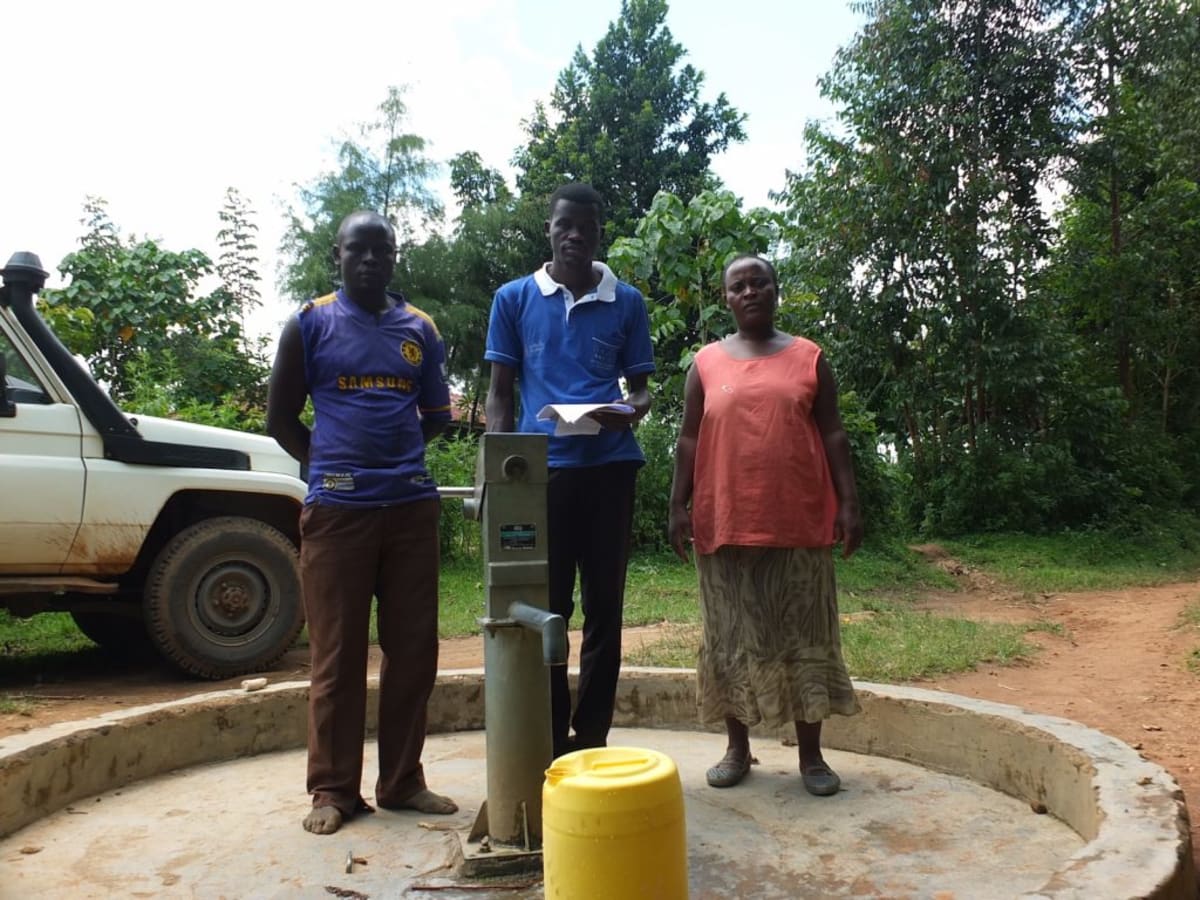This project is a part of our shared program with Safe Water and Sustainable Hygiene Initiative (SAWASHI). Our team is pleased to directly share the below report (edited for clarity, as needed).
Welcome to the Community
Muyundi Village is located in the northern part of Kakamega. The community is surrounded by green vegetation, since farming is the main source of income. Most of the local farmers specialize in growing maize and sugarcane.
There are two schools within the community, Namanja Primary School and Namanja Secondary School. The majority of students that attend the Namanja schools are local.
Women and children are those primarily responsible for fetching water and keeping good hygiene and sanitation in their homes. Men are busy on their farms working to earn enough income for their families. Most young people here earn money by helping cart sugarcane around, while others are "boda boda" drivers (they taxi people around on their motorbikes).
Upon receiving a project application from the assistant chief, we visited to gather details:
Water Situation
The Kenya Finland Company saw the need for a water source in Muyundi Community. They installed a hand-dug well in the center of the village in 1990. This well served the community until 1992, when the Nira pump broke down and attempted repairs failed. Nira pumps are especially difficult to repair because its parts are not easily accessible in Kenya. Community members report that they find temporary fixes for their well system, but the pump seems to cause problems on a monthly basis. The last temporary fix they undertook replaced the pumping mechanism with riser main pipes. Judging from he pictures, these are very difficult to use! Pulling the pipe up and down to draw water is especially cumbersome for children and the elderly. Locals also shared that they constantly have to work harder to draw less and less water.
The community requests an intervention to give them a more reliable and repairable pump. The rehabilitation will include an overhaul of the existing cracked well pad, ensuring that the water inside is once again protected from outside contaminants.
Once the water is delivered back home, it is separated by use. Some is poured into a covered clay pot for drinking, which keeps the water cool, and the remainder remains in the same plastic container in which it was fetched. This leftover water gets used for cleaning and other domestic chores.
Many children and elderly resort to the alternative sources in the community, which are unprotected and very risky to drink. One is an unprotected spring located two kilometers away! There is also a shallow well that does not have a pump, so a bucket tied to a rope must be lowered to fetch water. Moreover, this shallow well dries up on a seasonal basis during the moths of January, February, and March.
Whichever water source chosen, families constantly deal with cases of typhoid and diarrhea. Mother Perita Bulu confirmed this saying, "Recently we have experienced diarrhea in our children. The nearby dispensary is full of children under 10 yeas old suffering from diarrhea." You can see a photo of Mrs. Bulu under the "See Photos & Video" tab.
Sanitation Situation
Not even near half of households have a proper place to use the bathroom. Any latrines we observed during our visit were made of mud, banana leaves, and rags. We noticed a handful of people who know a little about hygiene and sanitation; there were some helpful tools like dish racks and clotheslines for people to dry their things up off the ground. However, we couldn't find any hand-washing stations.
Plans: Hygiene and Sanitation Training
Community members will be trained for two days on applicable hygiene and sanitation practices. The facilitator will use the PHAST (Participatory Hygiene and Sanitation Training) method to teach about topics like:
- Proper water storage and treatment
- How to build a hand-washing station and how to use it
- Proper food preparation and storage
- Waste disposal
- How disease is spread and how to block its transmission
We also plan to supplement the "DIY hand-washing stations" with two of our own more permanent solutions that come in the form of water taps on metal stands. These two stations will be delivered to the well location so that locals can wash their hands before using the pump. Training will also result in the formation of a water user committee which will oversee, manage, and maintain the rehabilitated well.
Plans: Well Rehabilitation
The rehabilitation process will include material collection, pad reconstruction, flushing, test pumping, water quality testing, water treatment, and then AfriDev pump installation.
Rehabilitating this well will give Muyundi Community an adequate source of safe water in an accessible, central location. An AfriDev pump will be much easier to use while yielding a better supply of water. People will no longer have to resort to the unprotected sources in their area that are farther away and unsafe for drinking!

 Protected Dug Well
Protected Dug Well























